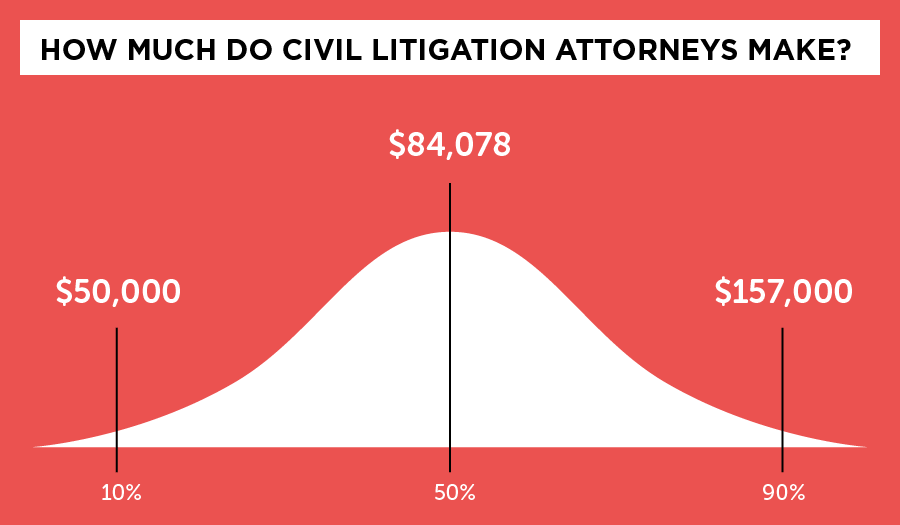Civil Procedure
Overview and Practice Tests
 By Andrei Zakhareuski, BarPrepHero, Founder/CEO
By Andrei Zakhareuski, BarPrepHero, Founder/CEOMore help for you
What is Civil Procedure?
Civil procedure is the branch of law that governs the rules and standards that courts follow when overseeing a civil lawsuit. The federal rules of civil procedure govern civil procedure in federal cases and other cases, and state or local courts may have their own rules of civil procedure that pertain to their civil lawsuit process. This area of law focuses on all stages of a civil case, from filing the lawsuit to obtaining a judgment. It also governs timing and standards for certain stages of the civil case, as well as how the courts and court staff must function during a civil case.
Start Preparing for Your Bar Exam Now
Steps in a Civil Case
Most civil cases will adhere to the following stages: filing the suit; pleadings and pre-trial motions and orders; discovery and depositions; trial; judgment; and post-trial procedures and remedies. Here is an overview of each stage of a civil case:
Filing the Suit
A civil lawsuit will typically commence by filing what is referred to as a complaint in civil court. This complaint will be sent by a process server to be served on the defendant.
Pleadings and Pre-Trial Motions and Orders
In response to the plaintiff’s complaint, the defendant will file an answer detailing any and all defenses to the claim. Several rounds of updated complaints and answers may be issued by both parties. In addition, pre-trial motions may be filed by the parties to the court, to do things such as dismiss the case, prevent certain documents or evidence from being admitted, or for restraining orders against the other party. The court will issue orders rendering a decision on these motions, which will be binding on the parties.
Discovery and Depositions
Next, a process referred to as discovery will take place. During this process, both parties will seek out information from the other party that is relevant to their claim or defense. These are often issued in the form of Requests for Documents, Requests for Admission, and Interrogatories to the parties or to outside parties with relevant documentation relating to the case. The attorneys will often conduct depositions, where they call in the other party, witnesses, or other people with relevant information about the case, and question them under oath to later use in court or to determine whether they would make a good witness at trial.
Civil Trial
If the case is not settled before trial, then the parties will proceed to the trial phase. A jury will be selected if a jury trial is chosen. The case may also be a bench trial, where a judge is the finder of fact. Both parties will present their case before the judge and jury, and the fact finder will deliberate on the findings to render a decision.
Judgment
Once the fact finder has come to a decision, they will announce their decision, referred to as a judgment, in open court. This judgment will determine whose case prevails, what type of compensation or action is available to either party, and who is responsible for paying the other party’s attorney’s fees.
Post-Trial Procedures and Remedies
If the losing party disagrees with the judgment, they may file an appeal with a higher court to try and get the judgment reversed. The winning party who has received a judgment for compensation will have to execute the judgment in order to receive compensation. This involves attempting to locate eligible funds or property that can be used to pay what the judge has ordered the other party to pay in damages.
How to Become an Attorney
The first step to becoming a civil litigation attorney is to graduate with a bachelor’s degree in good standing. A pre-law track, such as criminal justice or political science, is helpful but not necessary to becoming an attorney. A prospective applicant must take and achieve a successful score on the LSAT before applying to law school. Once admitted to law school, a student will study the different types of law and receive a law degree, called a Juris Doctorate (J.D.).
During law school, and even before law school, it is a good idea to get legal experience, either through internships, part-time jobs with local law firms, or programs or activities available through the school. There are also seminar classes that allow students to practice relevant skills such as mediation or negotiations.
After graduating from law school, students will sit for the Multistate Professional Responsibility Exam (MPRE) and the State Bar Examination. The MPRE covers professional responsibility of attorneys in the legal field. The State Bar Exam may contain any variation of the Multistate Bar Examination (MBE), Multistate Essay Examination (MEE) or State-Specific Essay Examination, State-Specific Civil and Criminal Procedure and Evidence Exam, and Multistate Performance Test (MPT).
After successfully passing the required tests, you can apply to the State Bar for a law license and get sworn in to practice as an attorney. Law firms that you apply for might want specialized experience in civil litigation, which is where earning practical experience during law school will be helpful.
Attorney Requirements
- Bachelor’s Degree
- Juris Doctorate Degree (J.D.) from accredited law school
- Passage of MPRE and State Bar Exam
- State Law License
- Specialized experience
Job Description and Duties
Civil litigation attorneys represent clients in civil lawsuits. These are lawsuits that take place in civil court rather than in criminal court. The main duty of a civil litigation attorney is to bring lawsuits against other people on behalf of their clients, or to defend their clients from lawsuits brought by other people. Civil litigation attorneys often work in a firm environment, and their duties include drafting pleadings, requesting and responding to discovery, representing their clients in court, and obtaining settlements on their clients’ behalves.
Salary Information and Employment Outlook
The average salary for a civil litigation attorney is $84,078 with a salary range of $50,000 to $157,000. According to the U.S. Bureau of Labor Statistics (BLS), the projected job growth for attorneys is 8% from 2016-2026.

Civil litigation attorneys often work in a law firm environment in a variety of fields, either representing clients in a plaintiff’s attorney setting or defending clients against civil litigation in a defense firm.
If you are studying up for the MBE, we have the tests to help you pass. Our free practice tests will guide your studying in the right direction so you can one day practice civil law. Also, we offer a premium program that guarantees you will pass the MBE!

